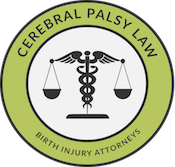What is Magnesium Sulfate Treatment?
Research suggests that the chemical compound magnesium sulfate has neuroprotective effects on babies. When exposed to magnesium sulfate in-utero, babies are less likely to develop cerebral palsy by 32% and severe motor impairments by 39%.
If your child has been diagnosed with cerebral palsy and you believe medical professionals violated standards of care, call our compassionate and experienced birth injury lawyers at (888) 592-1857 or fill out this online contact form. We will evaluate your case for free and answer any of your legal questions.
Who is Eligible for Magnesium Sulfate Treatment?
Physicians should administer magnesium sulfate to women with preterm premature rupture of the membranes (PPROM), preterm labor with intact membranes, or indicated preterm delivery. Magnesium sulfate treatment should begin between 24 and 32 weeks of gestation, or within a 24 hour period of time if the physician detects risk for imminent preterm labor. Physicians are obligated to administer magnesium sulfate in accordance with the following situations:
- Imminent labor: When labor is forthcoming, expectant mothers should receive a 1 gram dose every hour until the baby is born.
- Prolonged labor: If labor is going to take longer than 24 hours, physicians should delay magnesium sulfate doses until the cervix is ripe and the mother is closer to delivery.
- C-section delivery: When a C-section is scheduled, physicians should administer an initial dose and follow up with maintenance therapy.
- Emergency delivery: In the case of an emergency delivery, delivery should not be delayed in order to administer magnesium sulfate.
How Does Magnesium Sulfate Protect Babies?
Magnesium sulfate protects babies’ brains in the following ways:
- Magnesium sulfate has antioxidant effects.
- It stops the release of damaging molecules (cytokines) when inflammation is present.
- Magnesium sulfate halts a process called neuronal excitability (excitotoxicity), in which brain trauma, ischemia and oxygen deprivation lead to brain damage.
- Magnesium sulfate treatment stabilizes membranes in the brain.
- It prevents large blood pressure fluctuations.
- It increases blood flow within the brain.
What Are the Side Effects of Magnesium Sulfate Treatment?
When administered properly, the side effects of magnesium sulfate are minimal and uncommon. However, when physicians administer unsafe doses, monitor patients inadequately, prepare the drug incorrectly, and mistake magnesium sulfate for oxytocin, mothers are at risk for a number of side effects.
The following are possible maternal side effects of magnesium sulfate:
- Sweating
- Flushing
- Nausea
- Headache
- Magnesium toxicity
- Respiratory arrest (life-threatening loss of breath)
- Pulmonary edema (life-threatening presence of fluid in the lungs)
- Effects on the central nervous system
- Hypersomnolence (excessive sleeping)
- Muscle weakness
- Visual changes or blurred vision
- Loss of reflexes
- Chest tightness
When Is It Inadvisable to Use the Magnesium Sulfate Treatment?
The potential benefits of the magnesium sulfate treatment outweigh its risks, but certain contraindications for magnesium sulfate do still exist. If the mother has any of the following conditions, magnesium sulfate treatment may be dangerous:
- Myasthenia gravis (a neuromuscular disease)
- Compromised heart function or heart conduction defects
- Impaired kidneys (since the kidneys eliminate magnesium)
Legal Aid for Birth Injuries Caused by the Magnesium Sulfate Treatment
Physicians are obligated to understand how and when to administer magnesium sulfate. If you or your child were injured as a result of a mishandled magnesium sulfate treatment, it is medical malpractice. Call an experienced Michigan cerebral palsy attorney today at (888) 592-1857 and our skilled birth injury lawyers will review your case, answer your questions, and inform you of your legal options.
Sources:
- Marret S, Doyle LW, Crowther CA, Middleton P. Antenatal magnesium sulphate neuroprotection in the preterm infant. Semin Fetal Neonatal Med 2007; 12:311.
- Nelson KB, Grether JK. Can magnesium sulfate reduce the risk of cerebral palsy in very low birthweight infants? Pediatrics 1995; 95:263.
- Schendel DE, Berg CJ, Yeargin-Allsopp M, et al. Prenatal magnesium sulfate exposure and the risk for cerebral palsy or mental retardation among very low-birth-weight children aged 3 to 5 years. JAMA 1996; 276:1805.
- Grether JK, Hoogstrate J, Walsh-Greene E, Nelson KB. Magnesium sulfate for tocolysis and risk of spastic cerebral palsy in premature children born to women without preeclampsia. Am J Obstet Gynecol 2000; 183:717.
- Paneth N, Jetton J, Pinto-Martin J, Susser M. Magnesium sulfate in labor and risk of neonatal brain lesions and cerebral palsy in low birth weight infants. The Neonatal Brain Hemorrhage Study Analysis Group. Pediatrics 1997; 99:E1.
- Crowther CA, Hiller JE, Doyle LW, et al. Effect of magnesium sulfate given for neuroprotection before preterm birth: a randomized controlled trial. JAMA 2003; 290:2669.
- Marret S, Marpeau L, Follet-Bouhamed C, et al. [Effect of magnesium sulphate on mortality and neurologic morbidity of the very-preterm newborn (of less than 33 weeks) with two-year neurological outcome: results of the prospective PREMAG trial]. Gynecol Obstet Fertil 2008; 36:278.
- Rouse DJ, Hirtz DG, Thom E, et al. A randomized, controlled trial of magnesium sulfate for the prevention of cerebral palsy. N Engl J Med 2008; 359:895.
- Doyle LW, Crowther CA, Middleton P, et al. Magnesium sulphate for women at risk of preterm birth for neuroprotection of the fetus. Cochrane Database Syst Rev 2009; :CD004661.
- Costantine MM, Weiner SJ, Eunice Kennedy Shriver National Institute of Child Health and Human Development Maternal-Fetal Medicine Units Network. Effects of antenatal exposure to magnesium sulfate on neuroprotection and mortality in preterm infants: a meta-analysis. Obstet Gynecol 2009; 114:354.
- Doyle LW, Crowther CA, Middleton P, Marret S. Antenatal magnesium sulfate and neurologic outcome in preterm infants: a systematic review. Obstet Gynecol 2009; 113:1327.
- Bain E, Middleton P, Crowther CA. Different magnesium sulphate regimens for neuroprotection of the fetus for women at risk of preterm birth. Cochrane Database Syst Rev 2012; 2:CD009302.
- American College of Obstetricians and Gynecologists Committee on Obstetric Practice, Society for Maternal-Fetal Medicine. Committee Opinion No. 455: Magnesium sulfate before anticipated preterm birth for neuroprotection. Obstet Gynecol 2010; 115:669.
